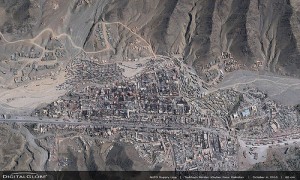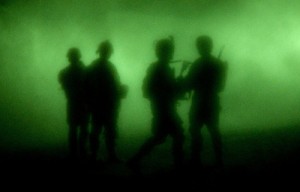Fallout From NATO Attack on Pakistani Border Posts Continues: Afghanistan At Center of Conflict
[youtube]http://www.youtube.com/watch?v=fXKtehgB-Cw[/youtube]
While a great deal of the attention on the effects of Saturday’s NATO attack on two (or three) Pakistani border posts that killed at least 24 Pakistani soldiers centers on US-Pakistan relations, the importance of these developments on relations between Pakistan and Afghanistan should not be overlooked. Most reports on the incident suggest that Afghan soldiers in the border region were responsible for calling in the air attack. While NATO and Afghan accounts claim that the Afghan forces were under fire from the Pakistani border outposts, the Pakistani military insists that the attacks were unprovoked. It should be noted that an Afghan group of investigators had arrived in Islamabad on Thursday before the incident on Saturday. This group was in Pakistan to investigate Pakistani ties to the militant group that killed former Afghan President Burhanuddin Rabbani on September 20 when he was starting peace talks with the Taliban.
The Attack
The Washington Post account of the attack has this key passage on the background situation:
The poorly patrolled and ill-marked border is the central sore point in Pakistan’s relations with both the United States and Afghanistan. American military officials say al-Qaeda and Afghan Taliban fighters live on the Pakistani side and cross the border to attack U.S. troops — with the knowledge of and help from Pakistani intelligence. Pakistan says the homegrown militants its army is fighting in the restive tribal areas can easily find refuge ineastern Afghanistan, which borders Mohmand, and that CIA drone strikes in the region inspire militants.
The Saturday airstrike came one day after [Commander of US forces General John] Allen met with [Pakistan’s Army head General Ashfaq] Kayani to discuss border security.
That Friday meeting between Allen and Kayani certainly makes the subsequent events on Saturday hard to understand. Only one day after discussing border security at the highest levels, we see a massive communications breakdown at a critical moment:
Maj. Gen. Athar Abbas, a Pakistani military spokesman, stopped short of that characterization [describing the attack as a US offensive action], but he said the strike was “inexplicable.” In an interview, he said the two border posts are clearly marked and their locations are known to Afghan and coalition forces. No militant or military firing preceded the NATO assault, nor did coalition troops inform Pakistan that they were receiving fire from the Pakistani side, as is procedure, Abbas said.
Once the strike began, Abbas said, soldiers notified their commanders in the nearby city of Peshawar, who told officials at military headquarters in Rawalpindi, who then informed two trilateral border coordination centers located at the Torkham pass and the border of Pakistan’s North Waziristan region.
“But somehow it continued,” Abbas said of the firing. “Our side believes there is no possibility of confusion. The post location is not where a Taliban would take position.”
The Express Tribune carries more of Abbas’ remarks: Read more →


